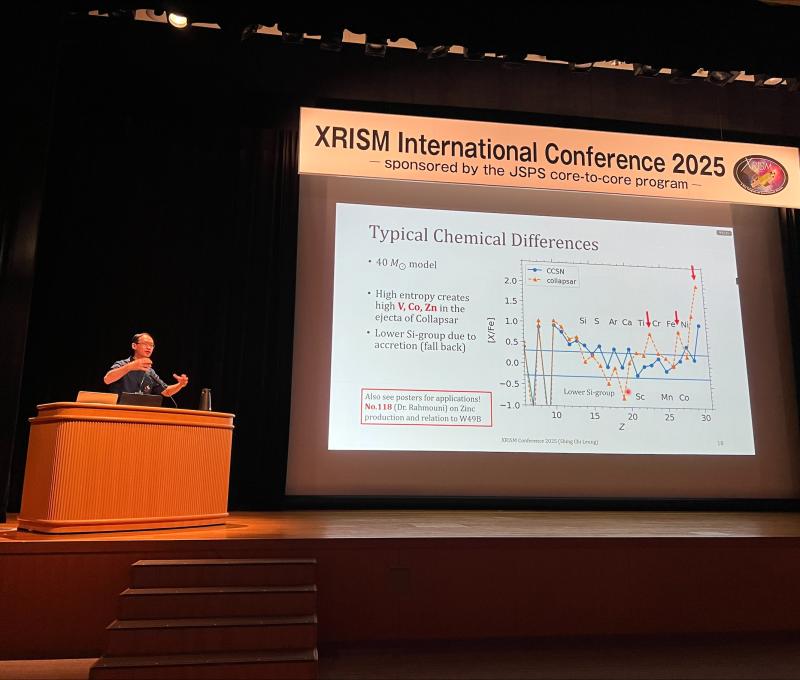Dr. Marie-Odile Richard Provides Important Insights About Star Ratings in New Research

SUNY Polytechnic Institute (SUNY Poly) Associate Professor of Marketing Dr. Marie-Odile Richard recently published research titled, “Shooting for the stars: What are the topics of reviews that affect star ratings?,” in the Canadian Journal of Administrative Science. The research, done in collaboration with Morgan State University’s Dr. Shimi Naurin Ahmad, is significant as it provides insights on the drivers of star ratings, which play a key role in the economic success of a business.
There is evidence that review ratings affect sales; yet little is known about the drivers of the star ratings from the perspective of the customers who have written them, notes Dr. Richard.
“A person who writes a review touches upon many different aspects of the experience,” she explains. “It is intriguing to explore the underlying topics that motivate customers to provide certain star ratings. Although there have been many studies to predict rating, they are mostly data driven. A marketing perspective and a consumer theory driven approach is still in their infancy. This article aims to fill this gap in the literature, and to explore the topics of reviews and their effects in determining the star ratings of a review. Since review rating influences prospective customers, traffic to the site and ultimately sales, examining the topics that make a customer rate a review in a certain manner is theoretically and managerially important.”
The topics that emerge from the recent analysis are Reliability, Features, Star rating, and Worth buying. The Reliability topic is negative in nature as evidenced by the negative words associated with it. The Features topic is positive in nature and Worth buying does not reveal any sentiment. The star rating is mainly positive and neutral. The reliability of a product is a basic requirement, and if a product does not deliver after purchase, it is bound to have a negative effect on customers. Customers take it as a psychological contract breach, and from the analysis, this topic contributes to the formation of a negative review, notes Dr. Richard.
“The lack of reliability decreases the likelihood of a review being a positive review by 0.32 compared to neutral,” she explains. “What is interesting is that having reliability may improve the rating by a little bit, but lack of it will damage the perception of the product heavily. For the Features topic, one unit increase of this topic is associated with being 1.5 times more likely to be in positive reviews compared to neutral reviews, but 0.53 times less likely to be in negative reviews than the neutral reviews. The relative importance of different features is subjective, and therefore, it seems that if someone likes a special feature, it contributes heavily to the positive rating the customer attaches to it.
“The worth buying topic contributes equally to the comparison. A customer’s perceived value of a product is indeed an important topic in determining the perception of the product,” explains Dr. Richard. “In both negative and positive reviews, this topic is something customers base their ratings upon. Features, Shipping service, Star rating, and Worth buying are reported in positive reviews. The Worth buying topic is significant when the comparison is drawn between the likelihood of being in a positive or neutral review. However, it is not a significant topic to differentiate between 4 and 5 star ratings. It seems that customers decide to have positive, neutral, or negative perspectives based on this topic of a product; however, the fine granulations of positive reviews are influenced by other topics of the product such as features or shipping services. Different combinations of features and services probably provide enough information for the customers to decide the exact rating of the product. In the negative review analysis, the topic of battery life does not contribute to the level of negative reviews.”
However, Dr. Richard found that Reliability, Worth buying, and Aesthetics contribute to the granularity. Given that lack of reliability and Aesthetics can have different subjective levels, they may contribute to the negativity level, she explains, adding that the analysis shed light on the topics that help customers determine the positivity, neutrality, or negativity of a product, and consequently the star rating of a product.
The research goes in further detail to uncover the topics that contribute to the level of negativity or positivity. The product category that the research discusses here is a tangible product (earphone) with some intangible quality with it (sound quality etc.). Therefore, “reliability” is a big decision criterion in the evaluation and can affect worth buying evaluation. Worth buying is complex, even so for a service experience, it is a balance of price (as indicated by “money” word in the result) and other important criteria. To make the matter more complex, price sensitivity in different contexts, purpose and culture may play a role. Therefore, product/service distinction and incorporation of human knowledge is a must.
“Knowing that electronic word of mouth, especially reviews, can have a direct effect on the decision of prospective customers and, more importantly, on the sales, it becomes an important question for the managers to know what topics of the product motivate customers to rate a product in each way, and also to know the relative importance of these topics in determining the rating of the product review,” said Dr. Richard. “Not only can they improve upon the issues that influence the negative reviews, but they also know which topics have a greater potential of turning the reviews into the positive or neutral group. This will also help marketing managers manage the products’ reputation.”
To access the recently published research, click here.







